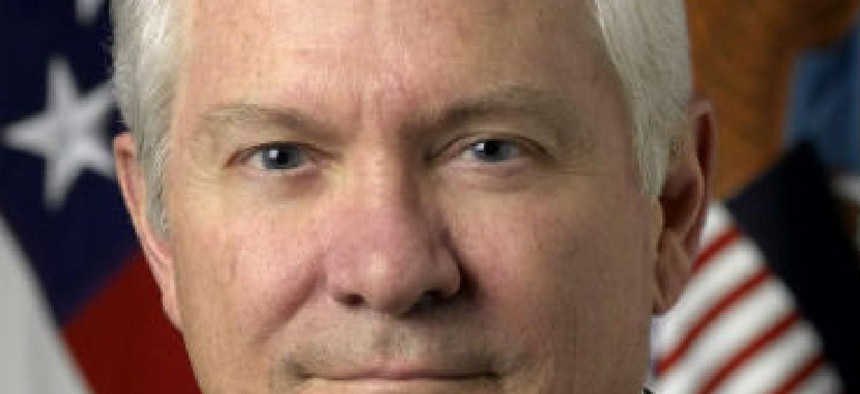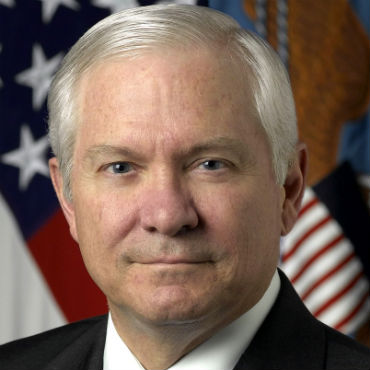Gates: NSA ‘primary weapon in this conflict’

The former Pentagon chief decried Obama administration leaks and privacy advocates who downplay the need for security.

Former Defense Secretary Robert Gates, on a press tour promoting his new book, "Duty: Memoirs of a Secretary at War," spoke at a Jan. 16 Politico Playbook event in Washington. The hour-long conversation with Politico’s Mike Allen covered a lot of ground, but a few gems on intelligence leaks and cybersecurity emerged during the discussion.
On stopping leaks: “The president and I were about the only people at the table who weren’t taking notes. At one point, when the president was really angry about leaks, I turned to him and said, ‘Mr. President, would you look around the table? Everybody’s writing! And they’re all going to go back and brief their staffs, and their staff will brief everybody else. If you want to stop leaks, tell everybody to put their damn pencils down. Say there’s one note-taker for the meeting, and he or she is from the National Security Council staff, and no one else is allowed to take notes.’ Uh, that never happened.”
On the possibility of a “cyber 9/11:” “First of all I think a cyberattack of that magnitude from nation-state with whom we are not at war is not very likely. So I think the greatest danger comes from non-government entities – terrorist groups, global organized crime, probably more likely a terrorist group. And some are very sophisticated when it comes to the Internet. So I think that is a very real danger.”
On the state of U.S. cybersecurity: “The problem I see is, I think we have the capability to protect our critical infrastructure, but bureaucratic and political issues have us so wrapped around the axle that we can’t figure out who to give the authority to defend us.
“The reality is – and this was a debate I had in Obama administration – when I first became Defense secretary, I asked the deputy general counsel of the department to get me a memo of what kind of cyberattack would constitute an act of war. When I left four and a half years later, I was still waiting for that memo.
“I think a lot of people who are really focused on privacy and civil liberties resist the notion of the NSA providing cybersecurity for the United States ...the truth is they are our primary weapon in this conflict.”


